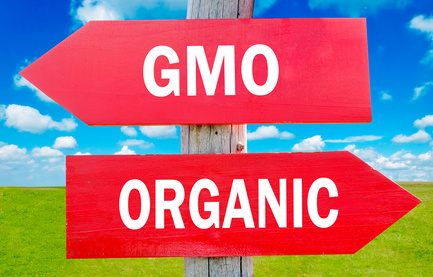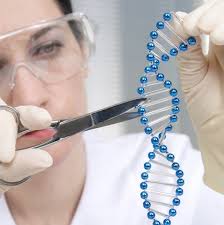October 17, 2015 – Genetically modified organisms or GMOs are to some a lifeline and to others the work of the devil. Evidence-based reasoning tends to fly out the window when the subject comes up at dinner parties. Everyone has an opinion but seldom backs it with science.
In studying GMOs I am convinced, if it weren’t for Monsanto, Dupont, Bayer and BASF and their predatory behavior in licensing seeds, that much of the opposition in the face of the science would wash away.
In this posting I want to share with you some interesting information I uncovered recently.
Genetic Literacy Project Calls for Peace Plan between GMOs and Organics
In the battle for hearts and minds organics are clearly the winner here in North America where GMOs are considered inferior produce and called “frankenfood” by many. But for much of the Developing World GMOs are deemed essential. Why is that?
In a comprehensive study by the U.S. National Research Council conducted in 2010, it concluded that GMOs from their original adoption beginning in 1996 had improved yields, and reduced pesticide and harmful chemical use on American farms. A follow up study in 2014 echoed these results. Published in PLOS One, this new study showed that GMO adoption reduced chemical pesticide use by 37%, increased crop yields by 22%, and raised farm profits 68%.
In another study on wheat farming practices planting using organic and conventional techniques farmers complained that without commercial fertilizers their crops produced lower yields. A farmer growing organic artisanal grains decried the opposition to GMOs stating that their presence improves farming overall. With GMO there are fewer airborne pesticides, less water pollution, drought resistance and therefore better soil retention, and cost effective.
A number of scientists advocate for coexistence. Bruce Chassy, Professor at University of Illinois stated, “there is no inherent reason why the two can’t coexist for some crops. Weed control is the number one application of GM. In a sane world organic farmers would use GM herbicide tolerant crops and glyphosate.” Plant geneticist, Pamela Ronald, University of California Davis, is married to an organic farmer and she argues, that to have sustainable agriculture capable of feeding 9 billion, the merger of organic and GMO is an absolute necessity.
It is this latter argument that wins out in the Developing World where close to one billion go hungry every night. And yet a number of European countries have recently announced bans on GMO, and in turn because of their trade agreements, has led to Developing World countries, such as those in sub-Saharan Africa, to follow a similar course. That’s why a peace treaty between these two is needed, where the ideology gets tempered by the science, and global food needs get factored into the discussion in a rational way.
Unregulated Gene Editing Will Alter What Gets Served on Dinner Plates Says DuPont
Tools like CRISPR, described in past postings, are moving into the mainstream making it possible for independent laboratories as well as big chemical companies to do high-speed gene editing on plants. DuPont is one of many that sees a second GMO revolution on the way. This revolution is not about engineering plants to withstand pesticides and herbicides through modification by adding bacterial genes (i.e., Monsanto’s Roundup Resistant Corn and Soybeans). Instead this is about engineering resistance to blights, drought and other problems arising from climate change.
A tool like CRISPR can help to produce allergen-free peanuts. CRISPR is being used to produce new strains of soybeans, rice, potatoes and tomatoes. DuPont announced recently it had created a modified wheat that is not self-pollinating. Instead it behaves like a hybrid displaying healthier plants and yield improvements between 10 and 15%. The company hopes to have it available for farmers in less than five years.
CRISPR is an amazing technology. With it scientists do find and replace engineering in a plant’s DNA. The result, it has never been easier to develop better crop traits and bring them to market faster. In an age of climate change where more and more prime agricultural land is subjected to unpredictable weather, bringing new crops to farmers to help them continue to produce food for a growing world population is essential.
To Feed 9 Billion by Mid-Century We Will Need to Produce 50% More Food
An Oxford University study looks at plant genetics as a way to make crops resilient in the face of climate change. The researchers have discovered a gene, called SP1, which regulates photosynthesis. Photosynthesis is critical to plants. Too much of it and the plant produces toxins which ultimately kills it. When a plant is exposed to groundwater saturated with high salt content or to drought conditions, photosynthesis begins to overproduce. But if you alter the SP1 gene you can calm the plant down. The researchers increased levels of SP1 and found that these plants were far more resilient to environmental changes.
The researchers are experimenting with tomatoes, brassica (i.e., cabbage, brussel sprouts, and mustard), wheat and rice. States Paul Jarvis, plant cell biologist at Oxford, “food security is on everybody’s minds….we have an issue with population growth, and we’re losing in the region of 50% of yields to consequences of stress. So with that backdrop, it becomes exciting if you can identify a gene that potentially could mitigate that loss.”











